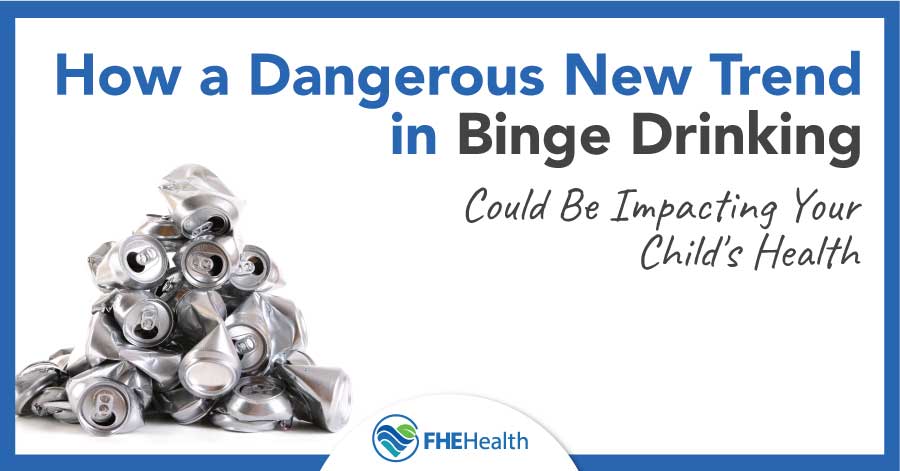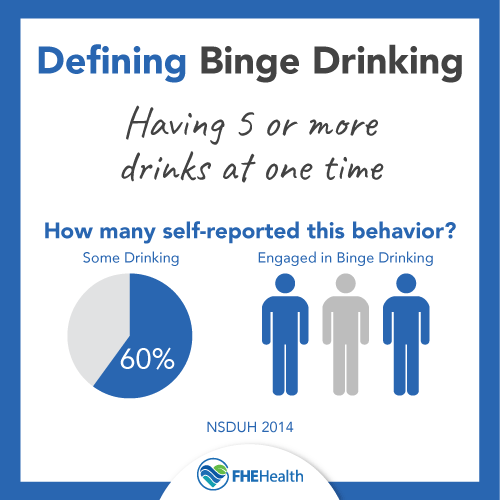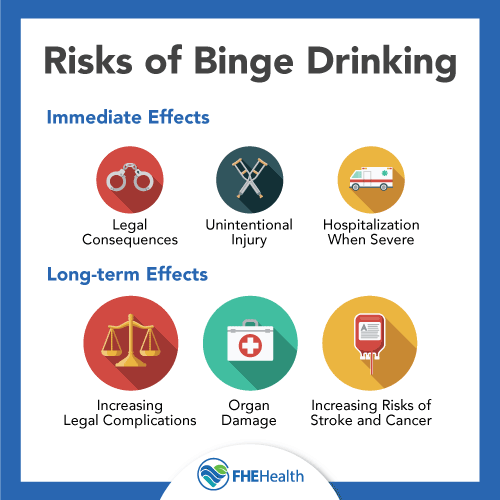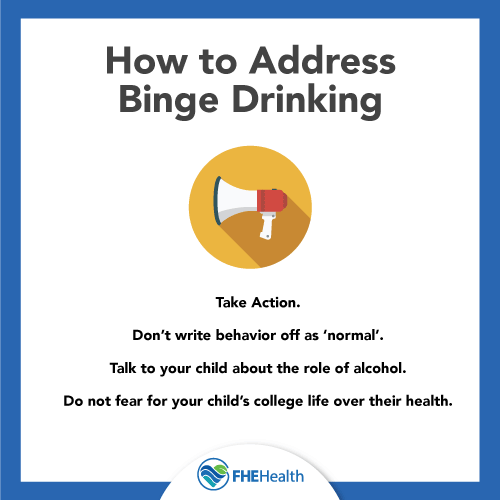
Research from the University of Minnesota is challenging historical trends in binge drinking and bringing to light new concerns about the long-lasting impact binge drinking can have on young adults. The study seems to indicate that, like many other cultural and social activities, binge drinking participation is peaking later in life and may be lasting longer.
That’s increasing the risks of a variety of adverse outcomes, including alcoholism, legal woes, and chronic health conditions, related to binge drinking. The specifics of the study on college drinking, those negative outcomes and what can be done to prevent them are discussed below.
The U of M Study on College Drinking and Binge Drinking Defined
 A common definition of binge drinking is having five or more drinks at one time (or sitting). This is the definition of binge drinking used in the survey. Researchers asked participants whether they had participated in this type of drinking within the past two weeks and how many times they had done so.
A common definition of binge drinking is having five or more drinks at one time (or sitting). This is the definition of binge drinking used in the survey. Researchers asked participants whether they had participated in this type of drinking within the past two weeks and how many times they had done so.
If participants answered that they’d engaged in this drinking behavior one or more times in the past two weeks, they were considered for the purposes of the survey to have been binge drinking.
This is not the first time such a survey has been performed. In fact, the long-running Monitoring the Future survey, which is conducted and published on a national level, asks some of these types of questions. Historically, the trend has shown that binge drinking increases steadily starting around age 18, and it peaks in the very early 20s (age 20 for women and 21 for men) before tapering off in later college-age years and late 20s.
The UoM study showed a different story, however. Among women and men both, binge drinking activity peaked at later ages — 22 for women and 23 for men. And binge drinking doesn’t necessarily taper off with age as it has in historical trends.
In the study, women reported increased binge drinking throughout their 20s and men reported increases through ages 25 and 26, though by later 20s, they were more in line with historical numbers.
The takeaway for all these statistics is this: Young adults are binge drinking more often later in life than previous young adults did.
What’s the Takeaway From All This?
 The study didn’t look into reasons for this shift, though other researchers are quick to point out that delayed norms a trend across all types of activities. Young adults today often delay actions such as getting married, having children, moving out or buying a home, for example. The delay in binge drinking may be related: without these types of commitments, young adults may simply be free to enjoy a party lifestyle longer.
The study didn’t look into reasons for this shift, though other researchers are quick to point out that delayed norms a trend across all types of activities. Young adults today often delay actions such as getting married, having children, moving out or buying a home, for example. The delay in binge drinking may be related: without these types of commitments, young adults may simply be free to enjoy a party lifestyle longer.
But even if that’s the case, the trends are troubling. Parents and others might chalk up binge drinking to a normal college experience, but that’s far from the truth.
Yes, it’s normal for individuals to experiment with and push all types of boundaries during late teens and early 20s. That’s true whether someone attends college or not. And amid the party crowd, there may be some pressure to participate in copious amounts of drinking to fit in or have fun.
But binge drinking can be dangerous, and it has long-lasting consequences. The longer someone engages in this activity, the more likely they are to experience some risks.
Risks of Binge Drinking
Binge drinking comes with both immediate and long-term risks.
 Immediate risks of binge drinking can include poor decision-making, which puts individuals in dangerous situations, memory loss and coordination problems, which makes injury more likely. Other effects can include dehydration, nausea and vomiting and other physical symptoms that can put immediate health in danger. At their severest, these are the types of symptoms that cause someone to end up in the ER or be hospitalized after a night of binge drinking.
Immediate risks of binge drinking can include poor decision-making, which puts individuals in dangerous situations, memory loss and coordination problems, which makes injury more likely. Other effects can include dehydration, nausea and vomiting and other physical symptoms that can put immediate health in danger. At their severest, these are the types of symptoms that cause someone to end up in the ER or be hospitalized after a night of binge drinking.
The long-term effects of binge drinking actually begin with these short-term symptoms. Impaired judgment or memory loss can lead to putting oneself in danger or committing crimes, both of which can lead to long-term results such as trauma, injury, and loss of freedom.
Frequent or ongoing binge drinking can lead to future health consequences, including damage to major organs such as the liver, heart or brain. It can also lead to infertility or increase someone’s risk of cancer or stroke.
Binge drinking can also lead to alcoholism, which can impact individuals who are college age. You don’t have to be a certain age or have certain life experiences and stressors to become physically dependent on a substance.
Introducing the same addictive substance, such as alcohol, into your body in ever increasing amounts (as is done with binge drinking) can cause a physical addiction no matter what else is going on with your age or life. And college-age students are certainly not without stressors and other triggers that could aid in the development of an addiction.
The Dangers of the Shifting Age Range of Binge Drinking
All of this is true no matter when someone starts binge drinking, but the shifting age range is concerning.
- First, because damage to your body done as you get older can be harder to mitigate
- Second, because individuals in their later 20s may have moved on from college and into careers and starting families, which creates a potentially larger negative knock-on effect from drinking
- Third, because the longer someone engages in binge drinking, the more likely they are to experience some of the many adverse side effects of this activity
Taking Action Now to Stop Binge Drinking
If you are concerned that your college-age child may be participating in binge drinking, it’s important to take action. Parents should not chalk up frequent binge drinking to a normal college experience and should know that while binge drinking, their child could be at immediate risk for dangerous situations and negative outcomes.
Binge drinking doesn’t necessarily indicate that someone is addicted to alcohol. However, it is an example of alcohol abuse. Begin by talking with your child about appropriate ways to integrate alcohol into their social life (if they are of age) and whether they feel they are able to control their drinking.
If they express a lack of control or worry they might be addicted, don’t be afraid to reach out to professionals to find out about rehab and addictions services.
Many parents worry that seeking rehab may interfere with their child’s college life, but not seeking addiction treatment when your child is struggling with alcohol can interfere negatively with their entire life. The compassionate team of counselors at FHE Health is ready to take your call 24 hours a day, seven days a week.






